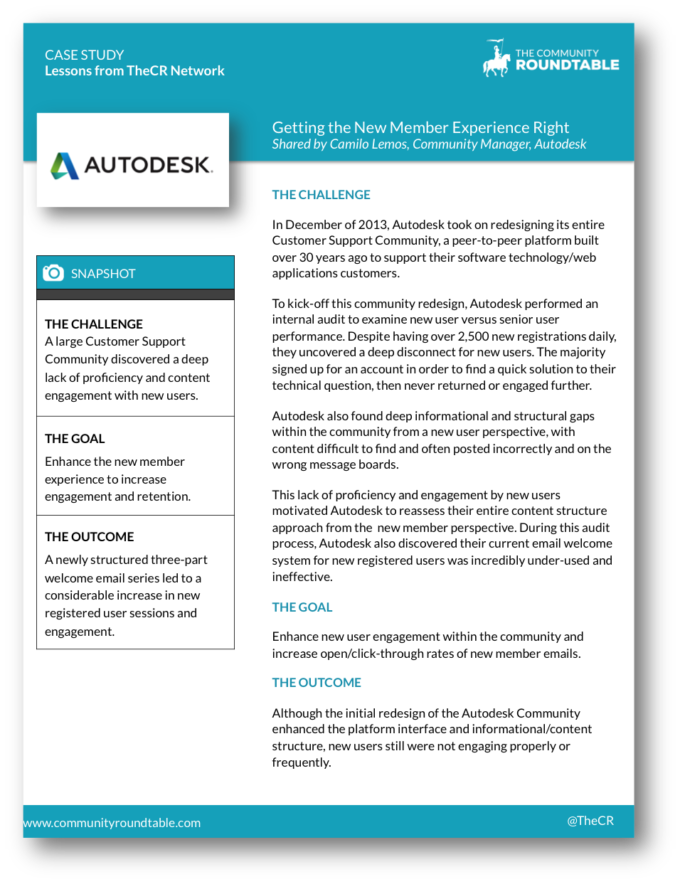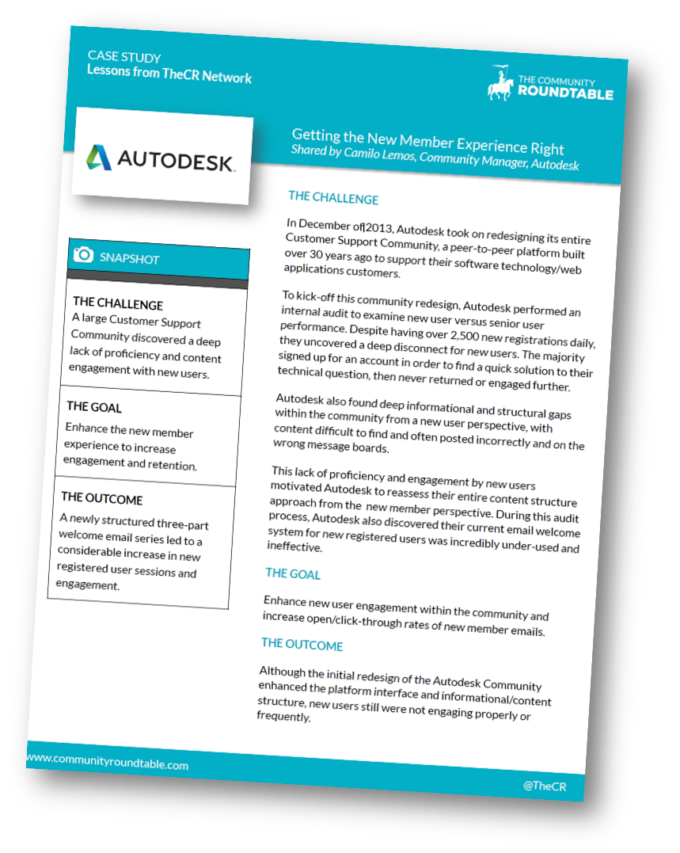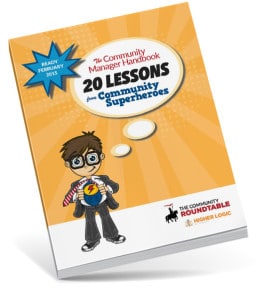Our research has shown that robust new online community member welcome programs have an outsized impact on long-term engagement. It makes sense – having someone welcome you, give you some ground rules on behaviors, give you a tour of the community, etc., makes new members more comfortable, and you’re more likely to dip a toe in a new community if you have ideas for how to do it.
One of the hardest things to remember is that while the new member process can seem boring and rote to the person conducting it, to the new member it’s all brand new. Luckily, automation has come a long way in the last few years, allowing even the smallest community team (we see you, lone wolves) to have a big impact on the way new members start their community journey with you.
In this short case study, Camilo Lemos, Community Manager at Autodesk shares how the Autodesk Community team has increased engagement and ensured proficient and effective onboarding interactions through enhanced new member programs in their online community program.
Download the Autodesk case study.




